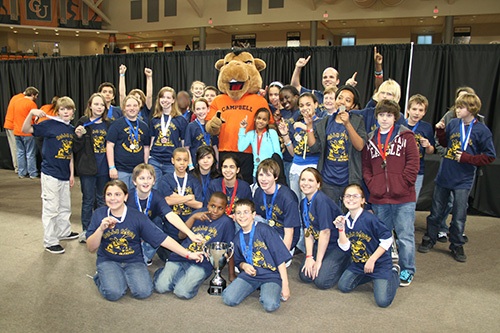I’ve written a lot about the future of U.S. cities on this blog, and there are numerous theories as to how a city rises up in the modern era. It’s hard to argue with this fact, though: the twin engines of current economic growth (in America, at least) are knowledge and oil/energy. To move towards either of those fields, you need a background in STEM — essentially, science/math — which has been an increasing problem in the United States, especially among females.
If you believe the future of cities are tied to future gains in STEM (which is probably true), then US2020 — a federally-funded competition that just wrapped — is up your alley. The goal was to dramatically increase sponsorship/mentorship opportunities within STEM — namely, to give students more access to people working in those fields, the cool things they do, and how they carved their own path. Seven cities won — Raleigh, Chicago, Allentown, San Francisco, Indianapolis, Philadelphia and Wichita — with Allentown, Chicago, and Research Triangle Park (Raleigh area) as the grand prize winners. Allentown is the smallest of those areas, and is focusing on trying to leverage multiple experiences (in-school, out-of-school, etc.), including a monthly Inventor’s Lab program for students in grades 4-8. At those events, students create their own ideas and work on developing them, and a team of scientists and patent attorneys are available for questions/context. Raleigh is using a A-E model in terms of mentorship, with “A” being one-off mentorship opportunities and “E” being deeply embedded ones. Wichita might seem like the weirdest city on here, but they do have a sizable population — and remember, Koch Industries is HQ’ed there.
It can be a little disappointing to see the headline on the Cisco advertorial (Huffington Post and Slate used it, among others) be “What do Wichita and San Francisco have in common?” — that seems to be trolling “midwest vs. coast” instead of getting at the actual issue here, sadly — but overall, US2020 seems like a sweet idea (maybe not “middle school of the future” sweet, but still). Remember: the heart of the “get-rich-quick-but-with-hard-work” economy in the US right now is Silicon Valley, and the immigration debate is completely different over there. You’ll see numbers from 44 percent to 70 percent in terms of launched companies with at least one immigrant as a founder; you can view this as “The American Dream Is Still Here” or, more coarsely, as “The US Is Terrible At Math And Science.” Both are somewhat accurate. Mentorship programs are a good first step, and having a competition forcing thought around these issues is as well. The future of U.S. cities may not lie along the coasts — it may lie in whichever area can harness these abilities the fastest and the best — so this is something to watch.
